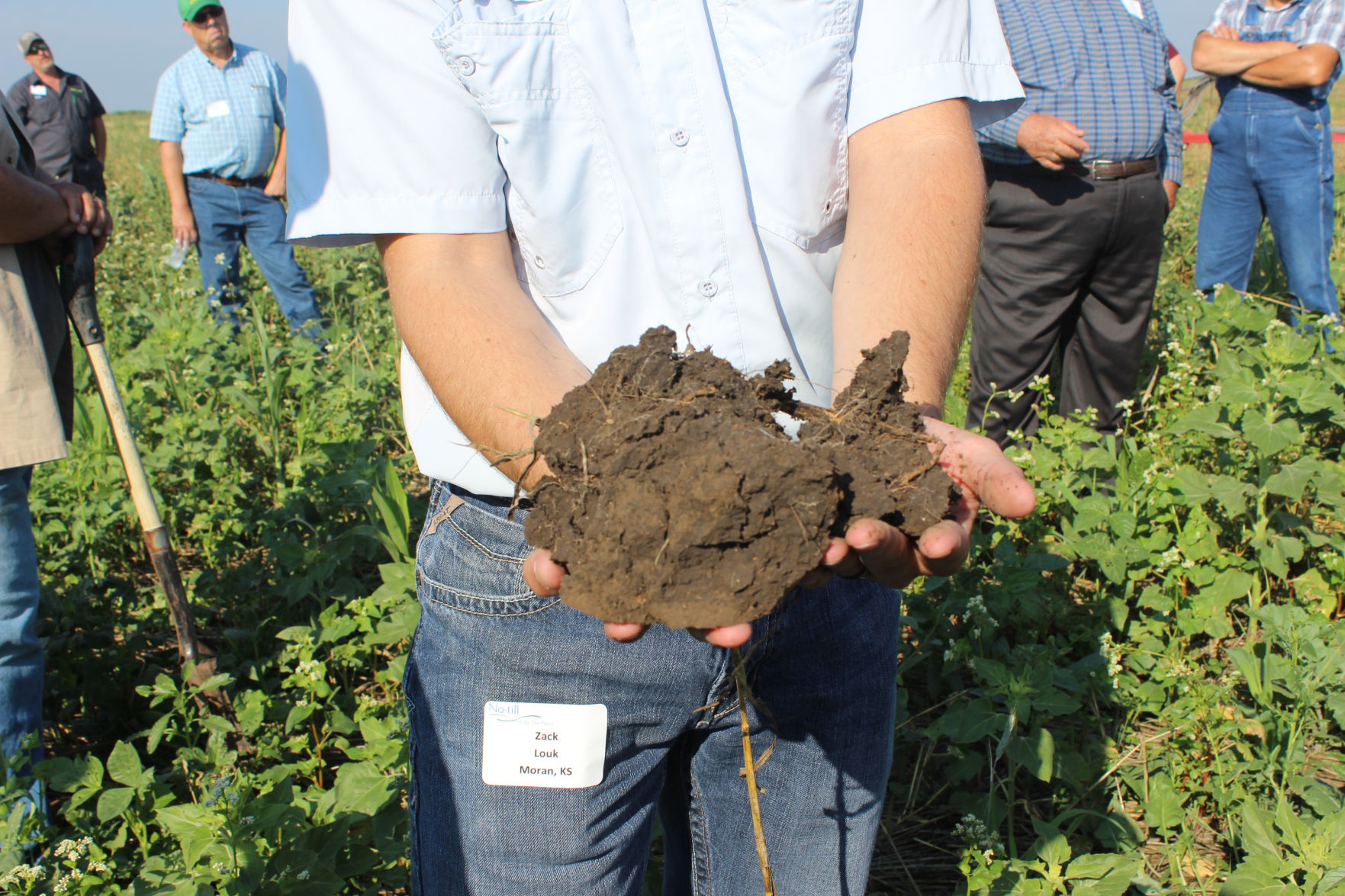Over the past year, I’ve had random texts from my brother-in-law, Scott.
The first was a photo out the tractor window with “Cover crop going in at Campbell Farms.”
The next was a progress photo a few weeks later that showed exactly no weeds in a problem field the year before.
“We talked about grazing cover crops at a livestock meeting last night.”
And most recently, we had a conversation about the feed quality test they had done on the cover crop, mainly because they were curious—it was significantly higher quality than they had anticipated.
Last year over Christmas dinner, I laid down the law on my brother-in-law, “You must come to Soil Health U.” And because he loves me, he did. (Or that’s what I’m telling myself!)
It wasn’t that I thought that our family farm was doing anything wrong—quite the opposite. But, I’d seen the program agenda. I knew the topics that were going to be discussed. I knew the quality of the speakers who were lined up. That opportunity doesn’t come along every day.
And so Scott came.
Our farm is like many of yours. Over the years, my dad, brother and brother-in-law have been interested in progressive methods of soil conservation. We’ve gone from full tillage years ago, to a mainly no-till and strip-till farm. My dad long ago recognized the importance of soil health. There have been some fields though, that have become problems and needed a different solution.
My dad told me the other day, “Every situation you are confronted with, you have to do what makes the most sense. You have to look at what you want to accomplish,” he said. “That might involve other methods, even though we’re committed to not tilling.”
I’m guessing our family farm could be similar to yours. You are constantly evaluating ways to sustainably maximize profits on every acre. You want to do right by your soil, leaving your farm better for the next generation. But the key is how do you get that done?
I’m going to challenge you, just like I did Scott last Christmas. You must come to Soil Health U.
I don’t know how to adequately express the level of education two days will bring you. If you’ve been following along over the past few weeks, we’ve been highlighting speakers for the 2019 program. One of the speakers is noted on page 3B. Gabe Brown will be a keynote and breakout speaker. Gabe is a farmer from North Dakota and a pioneer in the world of soil health. His talk alone will be worth the $95 ticket cost for High Plains Journal subscribers. For less than $100, you have the opportunity to have two-days worth of focused learning that will be help you take the next step in your soil health journey. You can register, read features about speakers and find other information at www.hpj.com/soilhealthu.
And when we see each other in Salina on Jan. 23 to 24, 2019, I’ll give you my mobile number and I’ll expect text messages all year long about the things you are trying from your Soil Health U experience.
But don’t delay. The subscriber discount code expires on Jan. 1.
I’ll make you the same deal I made with Scott when he decided to try some new methods he learned at Soil Health U last year. If it works, it was his idea. If it doesn’t, it was mine.
Holly Martin can be reached at 1-800-452-7171, ext. 1806, or [email protected].
Sign up for HPJ Insights
Our weekly newsletter delivers the latest news straight to your inbox including breaking news, our exclusive columns and much more.



